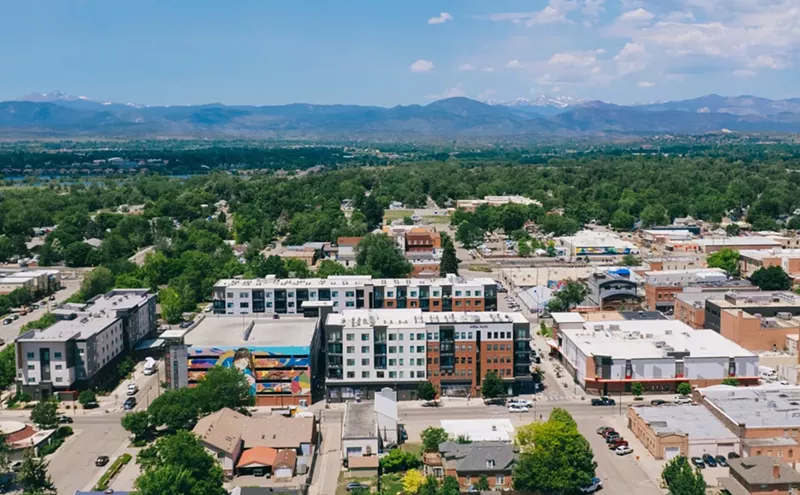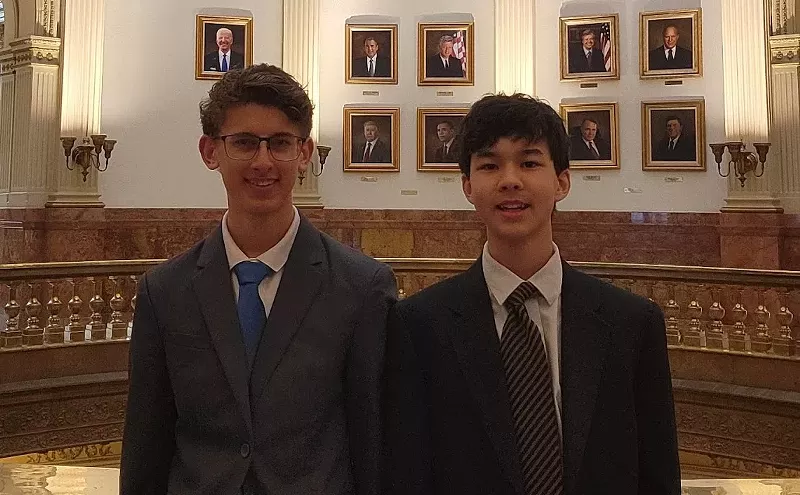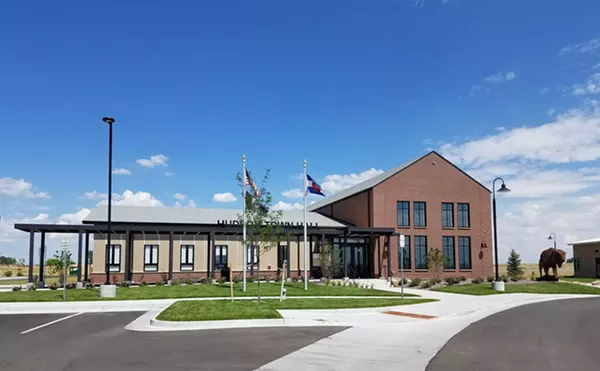"It highlights the need to increase voter registration in Denver," he says. "We were just shocked by the number of people who said they were registered voters who weren't."
So, too, was Jordan Person, Denver NORML's executive director, who notes that the number of signatures determined to have been valid was around 40 percent of those collected. Denver NORML submitted more than 7,500 signatures to the Denver Elections Division, but only 2,987 met the standard — well short of the 4,726 needed for qualification.
"Last night, we sat around with ten people who were out there gathering signatures, thinking about all the people who told us, 'Oh, yeah, I'm a registered voter in Denver,'" Golden notes. "It made us wonder: Were they just trying to be nice, or did they just not understand?"
The signature collection for the Denver Responsible Use Initiative was largely a volunteer effort; Golden says a few folks were paid to collect signatures toward the end of the process, but the results weren't especially satisfactory. As such, Denver NORML "will be working on voter registration between now and the election — because something needs to be done."
In the meantime, the proponents of the Neighborhood Supported Cannabis Consumption Pilot Program, another social-cannabis-use proposal, are waiting to find out if their measure made the ballot. The program would allow for cannabis consumption in venues that serve alcohol, such as bars and restaurants — and Golden sees "practical and legal issues about how they want to do it. The bar thing has been quite an object of contention."
At the same time, though, Golden points out that "the consistent position of NORML is that any expansion of places for people to legally consume this legal product is a good thing." With that in mind, Denver NORML will decide whether to endorse the pilot program if it makes the ballot.
And if it doesn't? Both Golden and Person stress that Denver NORML will continue to work toward addressing the social-consumption issue in Denver.
"The need is there," Golden says. "So we will try to do what we can to get this to occur."
Continue for our previous coverage.
Original post, 7:27 a.m. July 27: Editor's note: Two social-cannabis-use measures are currently collecting signatures in an attempt to earn a place on the Denver ballot this November: the Neighborhood Supported Cannabis Consumption Pilot Program and the Denver Responsible Use Initiative, sponsored by Denver NORML. Earlier this week, we published a post headlined Inside the Neighborhood Supported Cannabis Consumption Pilot Program. Today, learn more about the Denver Responsible Use Initiative.
In his discussions with Westword about the Neighborhood Supported Cannabis Consumption Pilot Program, proponent Kayvan Khalatbari touted the measure as being superior to the Denver NORML-backed Denver Responsible Use Initiative, but stressed that he and his colleagues wouldn't negatively campaign against the latter even if both items make the November ballot — something that's entirely possible.
If so, says Denver NORML executive director Jordan Person, this approach would mark a change in tone.
"They went on their social-media sites and said things to the effect of, 'Tell Denver NORML to withdraw their inferior initiative,'" says Person, who adds that "not one single person has contacted us via any format — not phone, not website, not Facebook, not Instagram — and did what they requested. And I've had proponents of their language badmouth me as an individual to my volunteers. They're playing very dirty, and I don't know why. This isn't a personal agenda. I'm just trying to change the city of Denver for the better."
The major differences between the pilot program and the Denver Responsible Use Initiative involve what could be termed "mixed use." The former would allow cannabis consumption at pre-existing bars and restaurants under certain conditions, while the Denver NORML plan presents a framework for legalizing 21+ marijuana clubs or special events — something Person says is more in keeping with the feedback she's been hearing while collecting petition signatures, 4,726 of which are due by August 15.
"We feel from the community response we've received that voters don't want people smoking cannabis at bars," she maintains. "That's one of the biggest things we've heard: 'I don't want to go anywhere where alcohol and marijuana are together.' The city council and the mayor's office don't want marijuana and alcohol together, either, and that's a national policy for NORML as well. At our national office, we don't believe in the combining of the two."
Just as important, Person believes that Denverites will balk at leaping from a policy of no social cannabis consumption whatsoever to potentially widespread use in bars and restaurants.
"We feel progressive politics is incremental politics," she says, "and right now, there's not a single city or state or any type of government that wants to deal with the kind of thing they're proposing yet. Maybe a couple of years from now, after our initiative has been enacted and we've proven that everyone is responsible and that you can have these clubs with no incidents, or very few, then maybe we could take another look. But I don't think we're at a point in our city or in the progression of marijuana legalization to put the two together yet. We have plenty of bars and restaurants in this city, but we don't have anywhere for people to safely, responsibly consume marijuana. And that's been our goal from the beginning — to solve that issue."
The pilot program emphasizes the involvement of neighborhood groups, which will play a major role in determining the language of any permanent measure. Person, too, has been meeting with such groups throughout 2016, but she sees the other measure's proposed structure as "unprecedented — something that will create a total bureaucracy."
There's one area where the campaigns are in agreement, however: Denver NORML also pledges not to engage in negative campaign tactics should both initiatives qualify for the ballot. But Person resents pressure being put on Denver NORML to withdraw its measure — particularly in light of the fact that many of the pilot program's backers were involved with 2015's Limited Social Marijuana Consumption Initiative, whose plug was pulled after more than double the number of required signatures had been collected.
"If the industry turns against itself, how does that look to the rest of the world?" she asks. "Denver is the center of marijuana policy for our country, and what they're doing is making us all look ridiculous. They're splitting the vote. And how do we know they're not going to pull their initiative again? We don't know. They've already done it once. Why would they expect us to step down? So we can do exactly what they did last year? Well, we're not. We're not going to disappoint the city. We have teams of people collecting petitions every single day to ensure that we're going to get enough signatures. We're close right now — and we're not stopping."
Look below to read the Denver Responsible Use Initiative.
Denver Responsible Use Initiative












